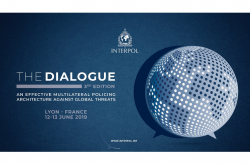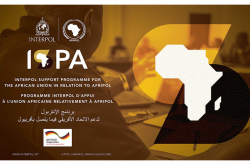Regional police cooperation is an integral part of our operating environment today since countries within a region often share borders, languages and similar crime threats.
Although at INTERPOL, we never lose sight of our unique global role, we understand the importance of regional law enforcement cooperation. Our goal is to support this, and also facilitate police cooperation between regions.
Better sharing of information and expertise benefits all countries, maximizes resources, and helps reduce any duplication of systems. It is for this reason that we strive to build stronger cooperation with our regional policing partners.
These partnerships are generally formalized through cooperation agreements. They can cover institutional and operational matters such as joint operations, the exchange of liaison officers, sharing criminal data, and co-hosting of operational meetings.
We work closely with the following regional policing bodies:
ASEANAPOL
Founded in 1981, ASEANAPOL has 10 member countries in Southeast Asia united under a shared philosophy “Together we keep this region safe”.
AFRIPOL
The African Mechanism for Police Cooperation headquartered in Algiers has 54 members.
EUROPOL
The European Union Agency for Law Enforcement Cooperation was set up in 1998 to serve the EU Member States
AMERIPOL
The Police Community of the Americas was founded in 2007 and is composed of 28 police forces and 19 observer agencies.
GCCPOL
The law enforcement arm of the General Secretariat of the Cooperation Council for the Arab States of the Gulf has been in existence since 1981.
AIMC
The Arab Interior Ministers’ Council founded in 1982 aims to develop and strengthen cooperation and coordinating efforts among Arab States in the field of internal security and prevention of crime.
High-level dialogue
Regular leadership meetings are a critical part of any global security platform. In 2016, we established a Dialogue on an Effective Multilateral Policing Architecture against Global Threats for this purpose.
This platform fosters top-level alignment with heads of regional policing bodies and gathers the leadership of AFRIPOL, AIMC, AMERIPOL, ASEANAPOL, EUROPOL, GCC-Pol and the Economic Cooperation Organization. Its third edition is scheduled to take place in 2019.
The most recent edition of the Dialogue process identified four priority action lines:
- Alignment of strategic planning;
- Promotion of a “single national node” for both regional and INTERPOL cooperation;
- Streamlining of access to information systems at the frontline;
- Joint development of global policing standards on technical policing matters.
Streamlining communication
Promoting the compatibility of our systems for data exchange is a priority with a view to giving frontline users integrated options for searches of certain databases. This can be considered within the relevant legal frameworks, and for example, provide access to our I-24/7 communications system or seek interoperability solutions.





